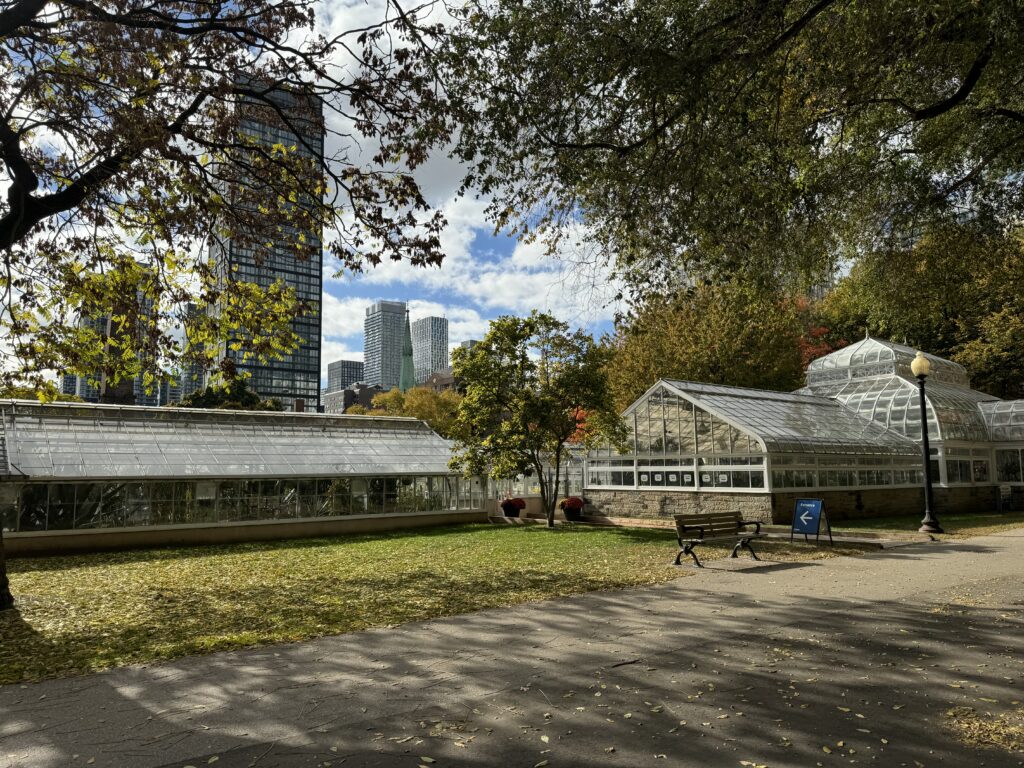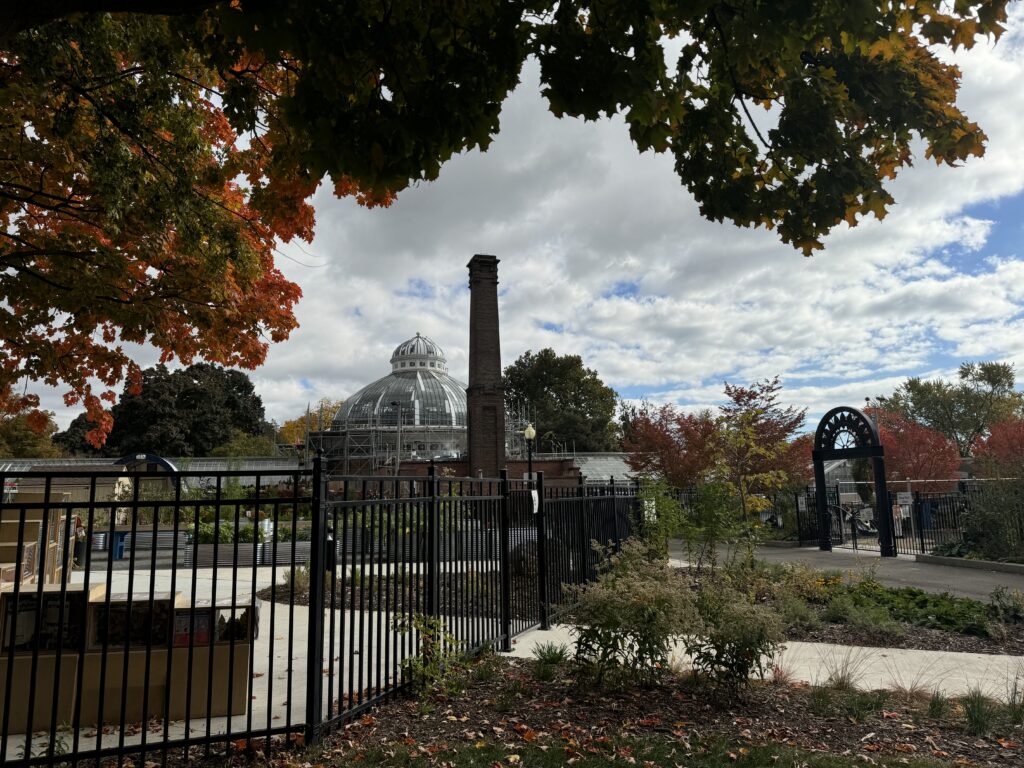
Listen to the full story here:
One week after clearing out the last remaining encampments, the Saturday Farmers’ Market will open with a publicised goal to “celebrate local food and community spirit.” The new farmers market is part of the city’s Friends of Allan Gardens initiative and their inaugural event will take place on Oct. 26 and will continue every Saturday until spring of 2025.
This comes just eight days after the final dismantlement of the encampment in Allan Gardens on Oct. 18 — where nine of the remaining unhoused people were offered housing support, and two people refused and were displaced.
Chris Moise, city councillor for Ward 13, Toronto Centre, referred to the encampment in Allan Gardens as “one of the most difficult files to navigate” since he took office, on his website in an October update. The park’s encampment has been long standing, Frontline community worker and advocate, Diana Chan McNally says she remembers its establishment dating back to the beginning of the COVID-19 pandemic.
“It’s changed over the course of time. People have moved out, people have also died. There’s been a lot of flux in that space over the years,” Chan McNally said. “But in 2023 the city decided that it was going to be one of their priority encampments.”
At the height of the park’s encampment in 2023, Allan Gardens held over 100 tents, according to Moise’s website. Charles Marker, a resident of the neighbourhood since the 1970s, said he remembers the community’s reaction to the increasing encampment.
“People here in our building, a lot of them complain about that. They feel they can’t go to the park because there’s tent people. Over the years, from time to time there’s been serious crime, not just recently, but back in the day. And some people have always been afraid of the park,” said Marker.
Around the same time, Coun. Moise began the Allan Gardens Task Force, “a team designed to limit the growth of the encampment and bring its vulnerable occupants indoors.”
Over 450 days, 98 people previously living in Allan Gardens were permanently housed, and a further 433 individuals were connected with indoor shelter accommodations. But Chan McNally said these could be choices made without full autonomy.
“I think what we just saw with this recent encampment eviction is that people were given a choice, either you will be formally evicted, or you will accept a shelter space,” said Chan McNally. “The alternative was to be fully kicked out. And so instead of just allowing people to remain where they are, they decided to fully evict these people, knowing that they did not have anywhere else to go.”
When asked about the two people who refused the option of shelter and were displaced as a result of the Oct. 18 eviction. Chan McNally said she has “no idea where they are.”
The city’s encampment eviction efforts were followed by Friends of Allan Gardens — a city funded initiative with projects underway that include the restoration of the Palm House building at Allan Gardens Conservatory (window glazing, glass cladding replacement and functional modernization of the ventilation and air quality systems and controls), as well as the Saturday Farmers’ Market.

Chan McNally said there is a fine line between being supportive and being coercive when it comes to approaching encampments and that the city’s priorities are misplaced.
“We’re just prioritising folks who are housed and not things that ultimately are meeting the most emergency needs, which is to say that people are completely without shelter, sometimes for years”
“And the city knows this, we want to put a happy face on what the city is doing. So it’s really about politics. It’s about optics, and it’s about prioritising, again, the needs of folks who have their own private space to go — and putting that into the public sphere,” said Chan McNally.
“[The city] knows that there are dire health implications to people, their mental health, their physical health, using drugs,” said Chan McNally. “I think my problem is that they decided that two people were worth sacrificing so that they could say that they had finished all of their good work in Allan Gardens.”
Moise referred to the completion of the task force as a “successful resolution of the Allan Gardens encampment” on his website. In regards to the farmers’ market that kicks off this Saturday, Chan McNally said the city’s allocation of funding and attention is disproportionate.
“There’s this idea that, okay, people with private space and private assets are the only ones entitled to public assets. So people who don’t have that private space, that private housing, they’re somehow not allowed to exist in the public sphere,” said Chan McNally.
“The math is if you don’t have one, then you are not entitled to any of it. And I just, I find it’s illogical, it’s cruel.”
Despite some of his neighbours expressing their feelings of upset and unsafe towards the encampment, Marker said he was empathetic to share the park.
“It’s never bothered me that there are people there living in tents, except in the sense that I feel bad that people have to live in tents.”
Chan McNally said eviction is not the solution, and emphasised the possibility of co-existing and cohabiting the space.
“Go to any public park, and you’ll see both homeless people and you’ll see everyone else using that space as well. It’s a false dichotomy that we’re putting forward here that really, again, affirms the idea that if you are without, you’re not worth anything at all.”
“The only real solution to that is to have housing just like the rest of us have, so that you don’t have to experience folks living out in the street.”
Sena Law, reporter, On The Record F2024.
This article may have been created with the use of AI tools such as Google Docs, Grammarly, and/or Otter.ai for transcription.
